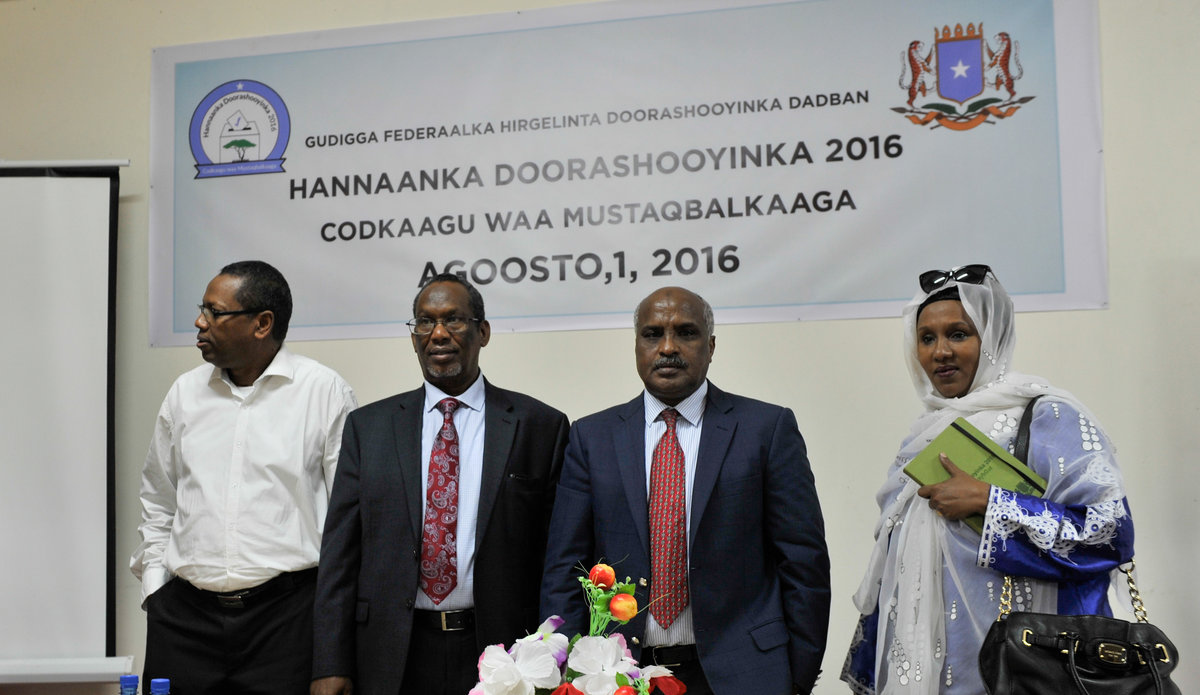Somalia’s electoral team promises a fair process
Members of the Federal Indirect Electoral Implementation Team (FIEIT) have assured the public that they will carry out their assignment with impartiality to ensure the electoral process is successful.Omar Mohamed Abdulle ‘Dhagey’, the chairman of the FIEIT, made the undertaking during a media briefing held today in the Somali capital Mogadishu.
Abdulle said the electoral process would be held concurrently in 37 locations in the federal and regional capitals including Mogadishu, Garowe, CAdaado, Kismaayo, and Baidoa.
According to Abdulle, the FIEIT has established committees at both the federal and regional levels and was working closely with Somali security agencies, mainly the army, police andintelligence, as well as the African Union Mission in Somalia (AMISOM), to ensure that the electoral process is held in a secure environment.
The team will oversee the conduct of the 2016 electoral process and handle complaints in accordance with the principles of democracy, transparency and accountability.
In addition, the upcoming elections will be more inclusive, with a representation of over 14,000 “electoral envoys”, mandated to elect members of the lower house of Parliament who will in turn participate in electing the President along with the upper house of the legislature. Dates for the voting for members of the country’s next federal Parliament have yet to be announced.
“The Federal Indirect Electoral Implementation Team is responsible for processing all that work needed to implement this elaborated plan. This committee, some of whose members are seated here, is responsible for planning, processing and overseeing the proper implementation of all election issues,” said Abdulle.
The FIEIT will train clan elders on the election processes and procedures, recruit electoral officials and accredit local and international observers.
In order to fulfil its mandate, the FIEIT has formed working groups to handle electoral planning and processing, training and protocol. Committees have been set up to handle women’s representation, communication and outreach, and security.
“The forthcoming election is not a multi-party election,” said Abdulle. “To the contrary, it is a clan-based election. Still, we have respect for the political parties, and we will consider any claim they might have. We will ensure the principles of transparency, impartiality and accountability of the electoral processes and procedures. We will listen to you and make corrections. We promise ensure impartiality in the exercise.”
He said the team derives its mandate from the National Leadership Forum, but is open to consultations with civil society as well as political organisations.
“According to the framework agreement, anything related to politics will be delivered to the National Leadership Forum for further management,” said Abdulle “This election is not based on law, rather it is based on the political framework guided by the National Leadership Forum, which consists of the federal government and the federal member states.”
 UN
UN





